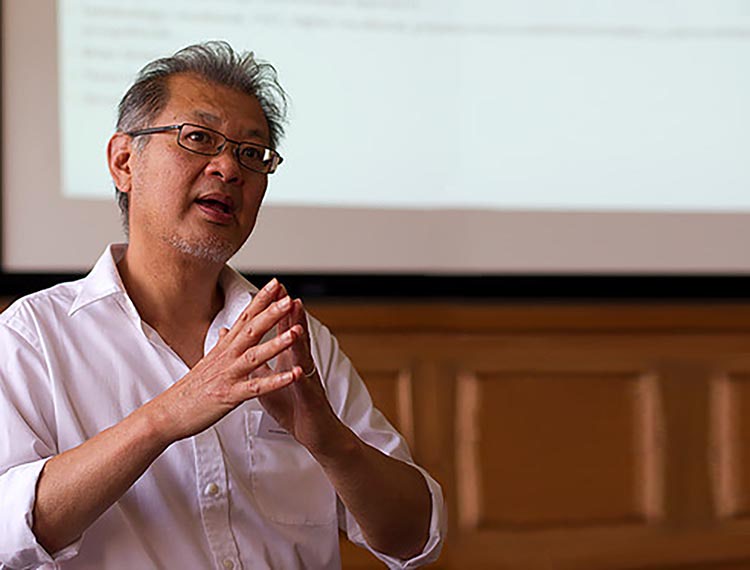Teachers’ emotional ecology: pedagogic, life and occupational experiences

Further Education, Professional and Occupational Pedagogy
This series of articles is taken from the research monograph, Further Education, Professional and Occupational Pedagogy: Knowledge and Experiences (Loo, 2019).
The first article centred on FE teachers’ professional identities, the second article on their emotional ecology, and the third, on reconceptualising teacher education as part of a strategic approach to widening participation. The findings are based on empirical data using a questionnaire, and semi-structured interviews of eight participants (all with vocational/occupational experiences) were carried out.
Relevant literature
Schutz et al. (2006) define emotions as ways of being that are socially constructed judgements, which emerge consciously or unconsciously regarding perceived aims, maintain standards or beliefs. Hastings (2004) studied the positive and negative emotions of Australian teachers. Trigwell (2012) developed this previous notion by relating teachers’ emotions to their teaching approaches. O’Connor (2008) expanded on past studies by finding that teachers’ roles were emotionally engaging and personally demanding in complex contexts. In the US study by Cross and Hong (2012), they use a relational and social construction where the teachers’ emotions and educational activities are related and socially enacted. Zembylas (2007) goes further than Cross and Hong to suggest that a teacher’s emotional ecology includes a teacher’s personal history, understanding of learners and subject matter.
Thus his study provides a framework for studying FE teachers’ emotional knowledge via pedagogic, life and occupational know-how. Furthermore, the three planes of emotional ecology as delineated by Zembylas are used as a way of structuring the discussion of the data in later sections. First is individual (such as emotional connections with the subject matter, beliefs about teaching and learning, and self- awareness). Second is relational (such as emotional connections with learners, their emotional experiences and knowledge of learners’ emotions). Third is socio-political (such as emotional knowledge of institutional, cultural contexts, curricula, subject matter and pedagogies) (Zembylas, 2007. This typology of emotional ecology offers a useful theoretical framework to critique and evaluate the broader professional knowledge of FE teachers.
Results
This section draws from the eight participants’ empirical data and uses Zembylas’s three types of emotional planes of individual, relational and socio-political. These planes are used to foreground the participants’ wider professional experiences of pedagogy, life and occupation.
1. Individual
Ann is a female in her 40’s. She was teaching at an FE college on a full-time basis on radio production and journalism for four years. Her family background was not privileged, and she went to a state school, but she did her first degree at the University of Oxford. Her mother died when Ann was in her teens. She worked in Japan in the hotel industry before returning to the UK.
Ann had negative experiences when she started teaching. She felt a fraud teaching journalism because she felt that she was not experienced enough in her occupational practice. This was different from Hasting’s (2004) findings of the teachers’ disappointments, frustrations and anxieties. Her feelings were inter-related. They relate to her teaching of journalism where she felt her lack of experiences was preventing her from being a good teacher on the one side, and her lack of occupational experiences, which she might not be able to draw from on the other side. Unlike Trigwell’s (2012) findings of university teachers with negative experiences of teacher-centred approaches, Ann used student-centred approaches such as role-plays. Her empathy with her disadvantaged learners gave her a different pedagogic approach, unlike Trigwell’s teachers. She also believed that “teachers needed to be aware of their intrapersonal and interpersonal weaknesses and suggested therapy for those before teaching”. This philosophy resonated with Schutz’s (2006) findings. Ann’s life experiences of therapeutic help when, as a teenage, she lost her mother, gave her a greater awareness of herself and those around her. She used this negative life emotional know-how to provide a positive educational approach to her disadvantaged charges.
2. Relational
Lou, a female in her 30s, taught dance and Feldenkrais movement in adult and community settings. She worked five hours per week for five years. Trained as a dancer in the UK and Switzerland, Lou then toured the Continent with a dance company before turning to teach.
Lou’s relational, emotional plane covers pedagogic, life and occupational know-how. She referred to her negative learning experience of lactic acid poisoning in her dance programme as her dance teacher was not aware of this phenomenon. This phenomenon included forgetting dance movements, feeling fatigued and body pains. This negative learning experience is different from Hasting’s (2004) findings. She used her learning experiences to positively engage with her learners by adopting physical exercises as strategies to prevent her learners from experiencing lactic acid poisoning (pedagogic know-how). She learnt this phenomenon from her friend in physical education (life experience). She applied her know-how when touring with a European contemporary dance group (occupational experience) (Cross and Hong, 2012).
3. Socio-political
Cori, a female teacher in her 50s, teaches dental hygiene in a higher education institution half of her time, and practices as a dental hygienist in the other half of her time.
Cori features a socio-political emotional plane from the three forms of emotional knowledge: pedagogic, life and occupation. She sees her teaching in dental hygiene as of a higher status than her occupational role as a dental hygienist. At the institution level (Zembylas, 2007), she is teaching at a university on the first-degree course of dental hygiene with an affiliation to a professional body she views this as of higher social standing than being a dental hygienist. Culturally (Zembylas, 2007), the difference in the status of the two activities enabled her to ‘become’ the lecturer. But, there are pedagogic constraints. These constraints included the wider coverage of the course curriculum as well as that of the professional body’s regulations. These constraints prevented her from offering more holistic learning experiences to her learners.
Regarding her life experiences, she mentioned the time she, as a parent, waited at the school gates to collect her child while conversing with other parents. She felt that her role as a parent was different from that of a lecturer and a dental hygienist. As a parent, she provided emotional care and support to her offspring while attending school and other extra-curricular activities. Being a university lecturer, she was viewed as an expert in her field, which was science-related. As a dental hygienist, she was seen as of lower professional status to a dentist. However, slightly of a higher standing to a person at the front desk. Nevertheless, Cori’s different socially constructed ways of being offered a broader dimension to those by Schutz et al. (2006) and Cross and Hong (2012).
Turning to Cori’s occupational emotional know-how, tension exists between her teaching obligation to cover the professional requirements on the one hand, and offering her learners a more extensive curriculum and learning experience than that prescribed in the professional standards on the other.
O’Connor (2008) classifies this emotional tension as performative, professional and philosophical. In Cori’s case, one pressure is inter-related. Her educational activities, as a lecturer, are symbiotically linked to her occupational practices, as a dental hygienist. The other tension is a philosophical one: that of a holistic pedagogical approach on the one hand and the demands and constraints of covering the course curriculum and professional accreditation requirements on the other side. These two tensions are not featured in O’Connor’s findings.
Summary
The above delineations, using Zembylas’s (2007) three planes of emotional ecology, provided new narratives using a teacher’s pedagogic, life and occupational experiences.
Dr Sai Loo, UCL Institute of Education, University College London
Sai Loo (PhD, MA, BSc, FHEA, ACA, FETC) has taught in FE and worked in industry as a Chartered Accountant. Sai has published over 120 articles, conference papers and keynotes (84 per cent are single-authored) including six research monographs with Routledge. His research area is ‘occupational education’ across teaching, learning and work settings from pre-university to professional education.
In the final article, I will focus on teacher education/training as an approach to widen participation in the FE sector.
References
Cross, D. I., Hong, J. Y. 2012 An ecological examination of teachers’ emotions in the school context. Teaching and Teacher Education, 28: 957–967.
Hastings, W. 2004 Emotions and the practicum: the cooperating teachers’ perspective.
Teachers and Teaching: Theory and Practice, 10(2): 135–148.
Loo, S. 2019 Further Education, Professional and Occupational Pedagogy: Knowledge and Experiences. Abingdon: Routledge.
O’Connor, K. E. 2008 ‘You choose to care’: teachers, emotions and professional identity. Teaching and Teachers Education, 24(1): 117-126.
Schutz, P. A., Hong, J. Y., Cross, D. L., Osbon, J. N. 2006 Reflections on investigating emotion in educational activity settings. Educational Psychology Review, 18(4): 343–360.
Trigwell, K. 2012 Relations between teachers’ emotions in teaching and their approaches to teaching in higher education. Instructional Science, 40: 607–621.
Zembylas, M. 2007 Emotional ecology: the intersection of emotional knowledge and pedagogical content knowledge in teaching. Teaching and Teacher Education, 23: 355–367.











Responses